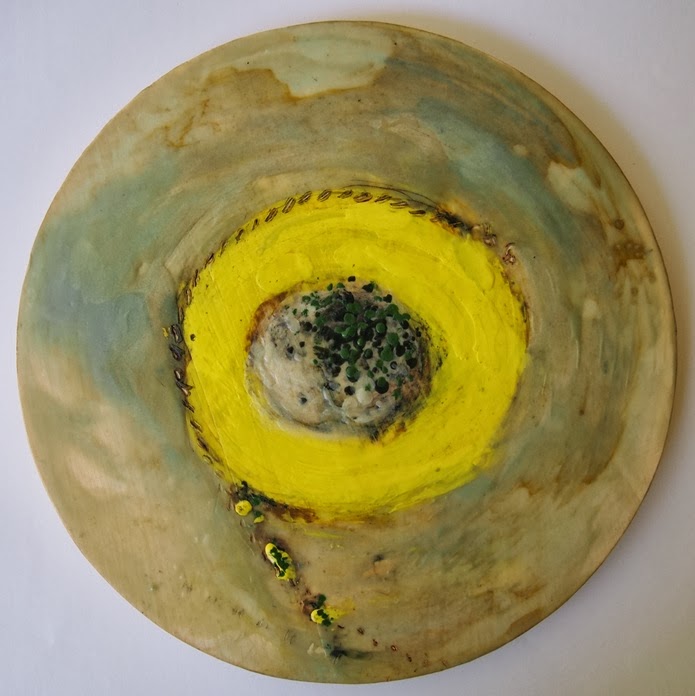Find out what the ' buzz ' is all about |
' In A Spin ' 2013
2015 - Upcoming CLASSES & WORKSHOPS
Workshop weekends: 10am - 4pm both days
Encaustic-Wax Foundations Weekends - 5/6 Sept & 10/11 Oct
Encaustics & Paper (day only) - Sun 30 August & Sat 24 Oct Classes: Start Wed 1st April 9.30am – 12.30pm Note: Other days may also be available soon Please enquire for further info or private classesWhere: TBACosts: From $60 - 3 hr group class ( min 2 sessions)Wax mediums & most materials are included in feeE: jackiarch52@gmail.com
See more on my website here: http://www.jackiarchibald.com/art-classes.html
Encaustic-Wax intro art classes 2014 Term 2 starting soon
Where: TBA
Dates: After Easter - from 23rd April Note: Other days may also be available soon
When: Wednesdays 9.30am – 12.30pm
Cost: Please enquire for details (Suggest a min. 2 sessions & choose which days suit )
Advantages :
* Tutor is a qualified art teacher with years of encaustic experience * Various techniques explored with unlimited uses * Incorporate your own other artwork eg. prints * Small classes with most materials & equipment supplied * Enjoy creative fun in a quiet & bushy environment
' Poles Reflection ' 2013
Encaustic means 'to burn' & here's more about painting
Encaustic is one of the oldest painting techniques, dating back to the 4th Century BC. The technique was used in the Fayum mummy portraits from Egypt and in early icons. Encaustic Wax also harkens back to the days of Trojan ships when they would coat the exterior of their ships with encaustic paintings in order to not only decorate their transportation, but to seal the ship against the harsh sea elements. The art form has seen a resurgence in recent years with the influence of 20th century American artists including Jasper Johns and the desire of artists’ and craftsperson’s worldwide to explore versatility and mixed media potential in their artwork.
Encaustic is both a paint medium and a technique; the medium is a wax based paint consisting of beeswax, damar resin and pigment. The technique involves heating the wax to a melted state and applying it to a support, ensuring the layers are fused with heat. The paint is manipulated with metal or heated tools, such as irons, hot air guns, and metal spatulas and brushes. Care & cleaning: The durability of encaustic is due to the fact that beeswax is impervious to moisture. Because of this it will not deteriorate. Encaustic paintings do not have to be varnished or protected by glass. Over time, due to the resin added to the wax, encaustic cures and the surface hardens. Under normal temperatures, the painting will remain stable. Like all fine art, it is best not to expose it to direct sunlight or excessive heat, avoid temperatures below 1.7 degrees Celcius or above 48 degrees. It is not wise to leave it in your car for any length of time, especially on either a hot or cold day. The surface of encaustic is somewhat like a candle so don’t be afraid to touch it. Although the surface is completely dry, encaustic paintings can be scratched, gouged, or chipped if handled roughly and should be treated carefully. When moving the painting do protect the surface and edges. As the wax cures, an encaustic painting may develop a film on the surface. This is a natural process called bloom and is easily removed, along with shallow scratches, by wiping the surface with a soft cloth. Once a year, give it a gentle dusting or buffing with a lint free soft cotton cloth to maintain the unique patina of the wax. |
Tuesday, 28 January 2014
ENCAUSTIC - WAX classes in Australia
Subscribe to:
Comments (Atom)
